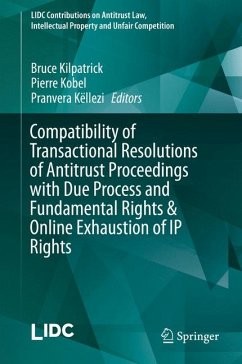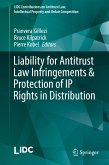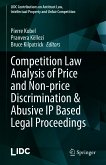The first part of the book examines the consistency and compatibility of transactional resolutions of antitrust proceedings (such as settlement procedures, leniency programmes and commitments) with due process and the fundamental rights of the parties. This is a particularly important topic, given the widespread adoption of these procedures by anti-trust authorities worldwide. The individual chapters consider how the leniency, settlement and commitments procedures have developed across a range of jurisdictions, and discuss the extent to which checks and balances have been applied in those national procedures in order to safeguard the fundamental rights of the parties involved. A detailed international report identifies general trends and highlights the differences between and most interesting features of national regulations.
The second part of the book gathers contributions from various jurisdictions on the unfair competition-related question of the online exhaustion of IP rights. As commerce is increasingly moving online, the respective chapters consider the extent to which exhaustion and similar concepts have adapted to these rapid changes. The comprehensive and insightful international report brings together these reflections by comparing various national positions.
The book also includes the resolutions passed by the General Assembly of the LIDC following a debate on each of these topics, which include proposed solutions and recommendations. The international League of Competition Law (LIDC) is a long-standing international association that focuses on the interface between competition law and intellectual property law, including unfair competition issues.
Dieser Download kann aus rechtlichen Gründen nur mit Rechnungsadresse in A, B, BG, CY, CZ, D, DK, EW, E, FIN, F, GR, HR, H, IRL, I, LT, L, LR, M, NL, PL, P, R, S, SLO, SK ausgeliefert werden.









